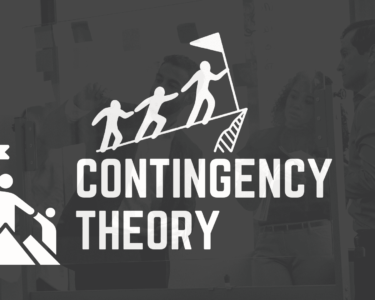In today’s business environment, understanding the behavioral aspects of organizations goes beyond issues of strategy and efficiency. Most often, culture, regulations and industry norms are some of the external influences in making most of the actions of the organizations. This phenomenon is explained by Institutional Theory, which basically studies the way in which organizations observe with what society and institutions perceive their need to conform with or to be allowed, survive and prosper.
Understanding Institutional Theory can be a convenient key to a deep understanding of organizational behavior as well as decision-making for all whether they are students of management, members of the business professions or pure passionate readers.
What is Institutional Theory?
It is a concept in the organizational study and sociology observing how organizations are influenced-by formal and informal rules in the environment in which they operate. Such rules may comprise laws, regulations, norms, values and cultural beliefs.
According to this theory, organizations operate not in a vacuum; rather they accommodate themselves and implement such external expectations to appear legitimate and trustworthy before stakeholders, government and their public.
Key Concepts of Institutional Theory

Legitimacy
Organizations tend to associate legitimacy with being perceived as appropriate, proper and desirable. It helps them in gaining support and resources from society.
Isomorphism
This is the process through which organizations grow quite similar to others in their industry due to external pressures. It has three types and they are as follow:
- Coercive Isomorphism: Pressure arising from regulations and laws.
- Normative Isomorphism: The influence of professional standards and education.
- Mimetic Isomorphism: Copying successful organizations to reduce uncertainty.
Institutional Environment
It means cultural norms, legal frameworks, educational systems or other institutional factors affecting organizational behavior.
Applications of Institutional Theory in Business

Institutional Theory has area-wide acceptance in:
- Strategic Management: Analysis of how businesses cope up with changes in environments.
- Corporate Social Responsibility (CSR): Analysis of the reason(s) behind companies taking up sustainable practices.
- Marketing: Discovery methods on how consumer preferences and social norms shape marketing strategies.
- Human Resource Management: Seeing how different HR practices relate to national labor laws and cultural expectations.
Also Read: Contingency Theory with Key 3 Component, Application and Real-World Examples
Examples of the Institution Theory in Practice
Example 1: Global Corporations and CSR
Most of the global companies like Unilever have environmental policies and even social initiatives that are adopted not only because of internal values they have but also for reasons of global standards and stakeholder expectations. This is typical of normative and coercive isomorphism.
Example 2: ISO Certification
Organizations pursue ISO certification for efficiency, but it also brings legitimacy and quality signal to partners and customers: even a clear example of conforming the institutions’ norms.
The ISO certification is a guarantee of competence for the many organizations. It is an assurance of quality to their partners and also a clientele-a typical example of conformity to institutional norms.
Example 3: Adoption of Green Banking in Nepal
Green banking practices are being rapidly adopted among commercial banks by Nepal because of the regulatory pressure attached with the urge to attain the sustainability agenda in a financial sector which truly indicates coercive isomorphism.
Advantages of Institutional Theory
- Explains how organizations are influenced by social norms and value systems.
- Assists in pinpointing why certain practices are adopted by several organizations in the same context.
- Useful for the analysis of processes for legitimacy or external pressures.
- Applicable in understanding CSR along with sustainability and governance strategies.
Criticism and Limitations
- Underplays the internal processes of decision-making.
- At times ignores innovations and differentiation with the thinking of the time.
- Imagined to work more on the reactive seat instead of being proactive.
Conclusion
The Institutional Theory provides a compelling perspective to theorize societal pressures upon organizations and the influence of this pressure on the structure of organizations and behavior. During the journey from CSR to regulatory compliance, attunement became the focus within the complex institutional environment with legitimacy taking precedence.
In an increasingly regulated and socially-conscious global business environment, understanding Institutional Theory is no longer simply academic-it is truly strategic.





